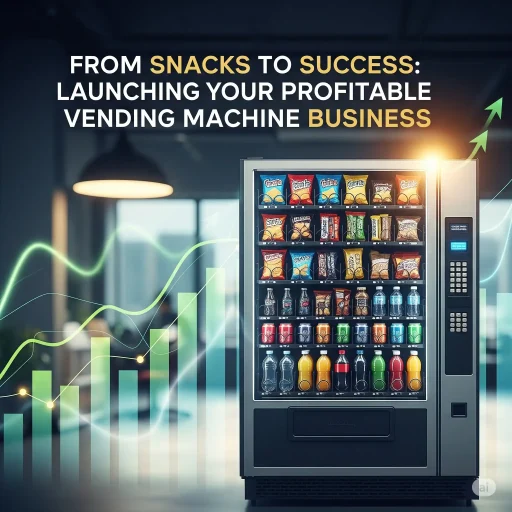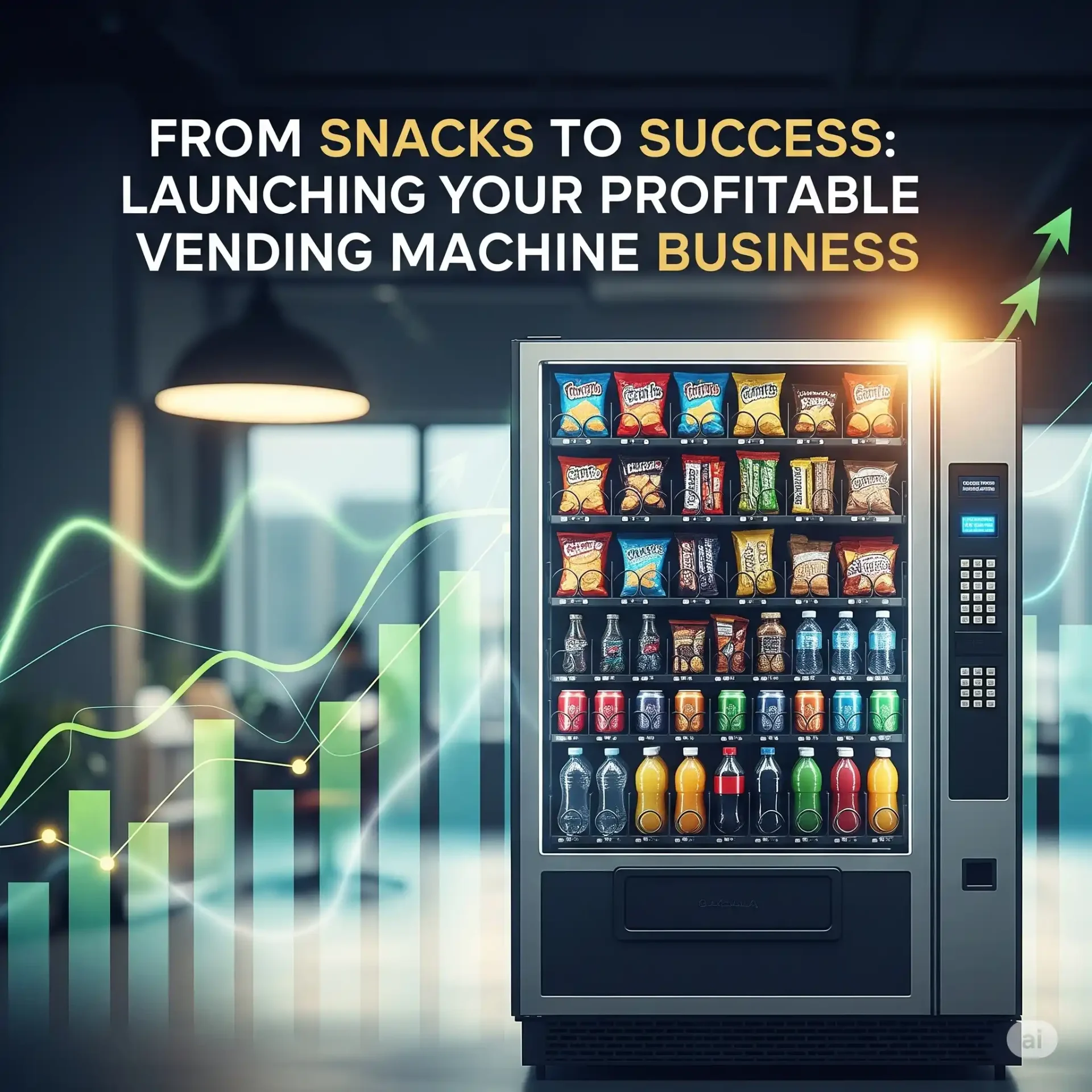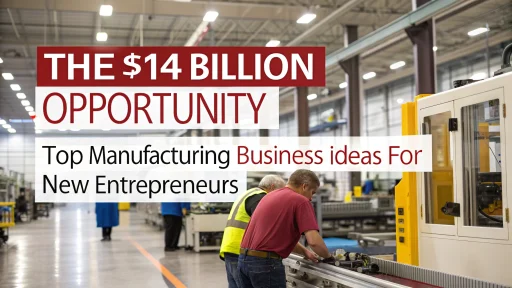Starting a vending machine business is actually pretty simple. People are busy and want quick snacks, drinks, or small things without waiting in line. That’s why vending machines are everywhere now—at schools, offices, malls, and more. You just buy a machine, stock it, and put it in a busy spot. If you keep it full and working, you can make steady money. It’s not just a dream—lots of people do this for real. Want to try? Let’s look at how you can start your own vending machine business and make money step by step.
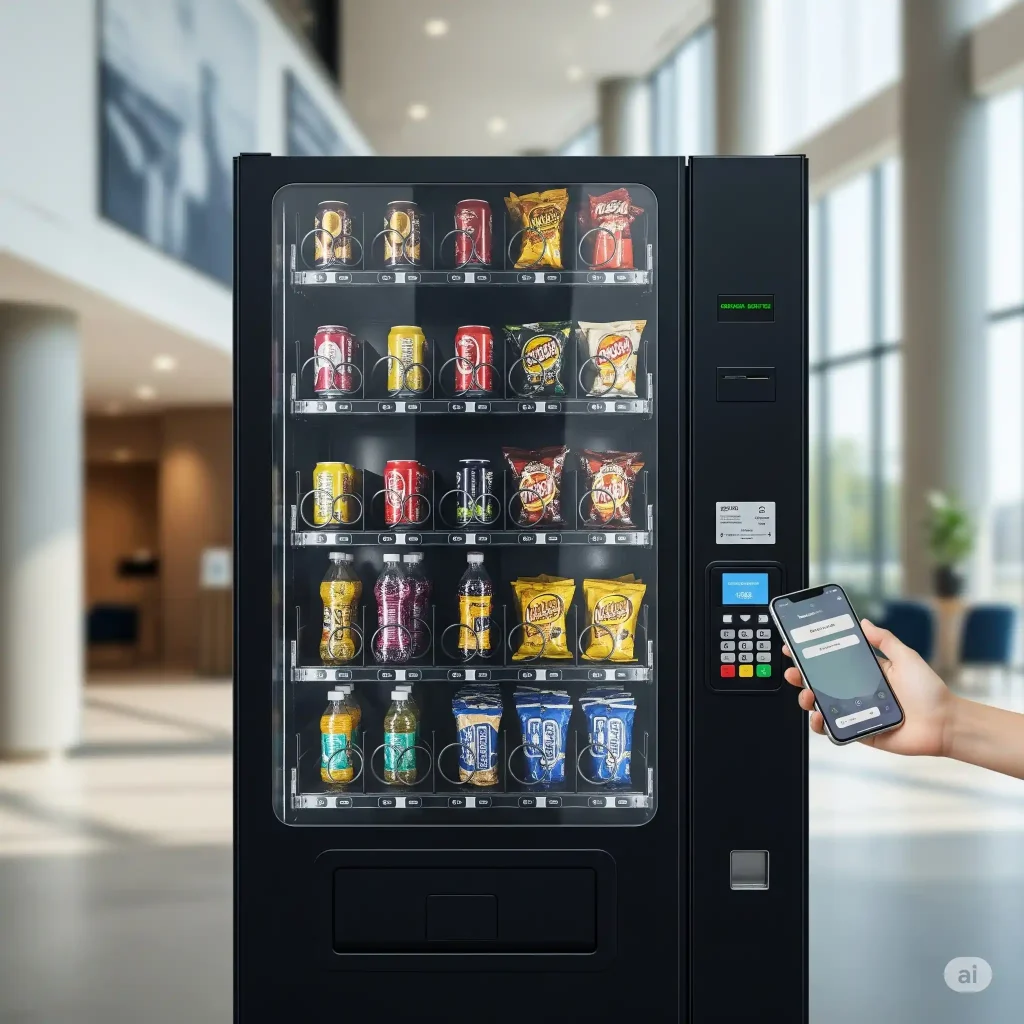
The Undeniable Appeal of Automated Retail
The vending machine business has seen significant changes from the stereotyped image of a smoky machine. Modern vending machines are equipped with advanced technology, a variety of products and payments that are cashless. Vending machines are super simple to run. You just fill them up with snacks or drinks and put them where people hang out, like offices or gyms. People grab what they want, and you make money without being there all the time.
It doesn’t cost as much as opening a store, and you don’t need a lot of experience. Plus, with phone apps, you can see what’s selling and when to restock. If you want extra cash or even a new job, vending machines are a smart and easy way to start. People love quick and easy snacks!
Read Our Book: Click Here
Laying the Foundation: Research and Planning
Before you purchase one machine, careful research and careful planning are essential. The initial stage will lay the foundations for a profitable and long-lasting business.
Market research
Look for areas with large foot traffic, but with restricted access to traditional stores at certain times. Examples include:
- Industrial complexes and offices: Employees often seek fast snacks and drinks during breaks.
- Colleges, schools as well as universities: Student are an regular source of cheap food and beverages.
- Healthcare and hospital facilities: Visitors and staff might require refreshments or personal items for care.
- Fitness centers and gyms: Health-conscious individuals often seek out Protein bars and energy drinks and water.
- Hubs for public transportation (bus as well as train station): Commuters appreciate easy access to snacks and beverages.
- Residential and apartment complexes zones: Providing convenient access to daily necessities can be an invaluable service.
Study what demographics are prevalent in your desired areas. What are their preferred choices? What kinds of items are likely to sell? Check out vending machines currently in these locations (if there are any). What are the products they provide? What is their pricing? This analysis will help you determine areas of opportunity and needs that are not being met.
Create an business plan
An extensive business plan will help you achieve success. It must include:
- Executive Summary An overview brief of the company’s goals and strategies.
- Corporate Description: Details about your business’s structure, mission and goals.
- Market analysis: Your research findings on the target areas competitiveness, demographics, and the competition.
- Services and Products: The types of items you’re planning to sell (snacks drinks, snacks healthier options coffee etc.).) and any distinctive selling points.
- Strategy for Sales and Marketing: How you plan to locate your vending machines in prime areas and advertise vending machines.
- Operation Plan: Information on the machine’s acquisition Installation maintenance, restocking as well as cash collections.
- Management Team: The details about you team’s expertise and the members of your.
- financial projections: Operating expenses and costs for starting, as well as revenue projections and analysis of profitability. This is essential for the securing of financing.
Securing funding: Determine your start-up costs, which may include the purchase or lease of vending machines, the initial inventory transportation, permits and marketing. Consider funding options like personal savings as well as loans from banks and credit unions, and even small business grants.
Read More: Most Successful Small Business Ideas with Investment of 1.50 – 2 Crores
Selecting Your Arsenal: Choosing the Right Vending Machines
It is important to consider the type of machine that you choose will greatly impact the range of products and operating efficiency. Be aware of the following elements:
- Sort of Product: Are you focusing on beverages, snacks or a mixture with both or specialized products like frozen food? Different machines are suited to certain types of food items.
- Capacity: Pick machines having enough capacity to handle the demands at your selected areas, but also take into consideration the shelf-life for your items.
- technology: modern vending machines have features that allow payments that are cash-free (credit/debit cards mobile payments) remote monitoring as well as energy efficient. These options can increase customer convenience as well as streamline your processes.
- New vs. used: New machines come with warranties and the most recent technology, but they have an upfront price that is higher. Used machines can be economical, but they may need more attention and maintenance, as well as include outdated features.
- Leasing vs Purchasing: Leasing reduces the initial capital investment, however it requires regular monthly payments. Purchasing gives you ownership, but it requires a higher initial investment.
Explore different vending machine brands and vendors. Compare pricing as well as features, warranties and customer reviews prior to making a final decision.
Read Our Project Report: Click Here
Location is King: Securing Profitable Spots
The performance of your vending machine business is contingent on finding highly-trafficked, strategic places. This usually involves negotiation, networking and demonstrating the advantages from having the machines located on site.
Identifying Locations Potentially Suitable: Revisit your market study and develop an orderly list of potential areas. Find locations that have:
- The high foot-traffic: More people visit your site, the higher the chance of sales.
- Alternatives are limited: Locations where people do not have access to cafeterias, convenience stores or convenience stores are perfect.
- A large audience: Locations where people tend to spend a considerable amount of time, like wait rooms, break rooms.
Contacting the Owners or Managers of the Location: Once you have identified possible locations, contact the managers or owners. Be prepared, professional and clearly explain the advantages of putting your vending machine located on their premises. Highlight:
- A convenient solution for their customers, employees as well as residents.
- A second feature that will increase satisfaction.
- The reality that you manage all installation as well as maintenance and restocking.
- Potential opportunities for revenue sharing (if appropriate and agreed upon).
Contracts for Negotiation: Be prepared to discuss on the conditions in your contract that includes the location in the system, length of the contract and any revenue sharing agreements. Prepare a template for a standard contract available to be reviewed. Establishing strong relationships with your location owners is vital to your long-term success.
Stocking for Success: Curating Your Product Selection
Your selection of products should be geared to the tastes of the target market in each area. Analyze sales data regularly to determine popular products and alter your inventory according to the trends.
The key is variety: Offer a diverse variety of products that draw a larger public. This could include:
- Snacks: Chips, candy bars, cookies, crackers, nuts, granola bars.
- Drinks: Juices, sodas and bottled water. Energy drinks tea coffee.
- Healthy options: Fruit, yogurt bars, protein bars and trail mix.
- Other items: Depending on the area, think about items such as personal care items, over-the-counter medication, or even tiny electronics equipment.
Supplying Your Inventory Establish trusting connections with suppliers of wholesale. Compare quality and prices to maximize profit margins. Think about local suppliers in order to lower expenses for transportation and boost your local economy.
Inventory Management Set up an effective inventory management process that can manage sales, track the level of stock and ensure prompt restocking. This will help prevent shortages and reduce waste from products that have expired. Make use of remote monitoring systems when your machines are fitted with this type of technology.
Pricing Strategies: Choose your price strategy based on your expenses and competitor prices, as well as what you think customers will value your product. You should aim for the right balance between affordability and profitability for customers.
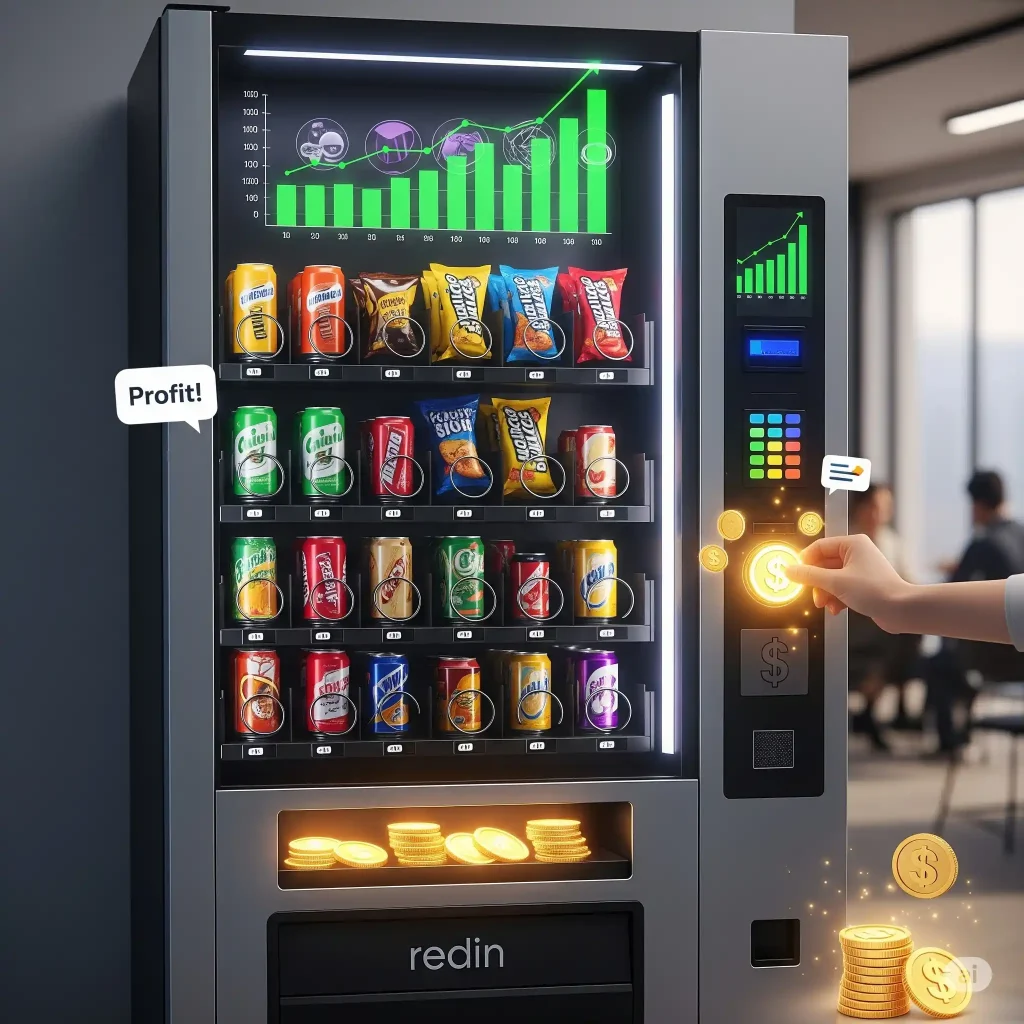
Maintaining Momentum: Operations and Customer Service
Effective operations and top customer service are crucial to the long-term prosperity for your vending machine enterprise.
Install and maintenance Make sure you have your machines have been installed correctly and in good condition. Create a maintenance schedule to avoid breakdowns, and resolve any technical issues immediately. A reliable technician is available to assist with repairs.
Stocking, Cash collection and Restocking: Develop an efficient plan for replenishing your machines and obtaining cash. Plan your routes so that you can reduce the amount of travel time and costs. Implement secure procedures for handling cash. You may want to consider using cashless payment systems to cut down on the requirement for regular cash collections and increase security.
Customer Services: Provide clear contact information on your machine for customers to submit complaints or give feedback. Respond promptly to questions and solve issues efficiently. A positive experience for customers could lead to more business in the future and positive word-of-mouth.
Technology Integration Make use of technology in order to simplify your business processes. Remote monitoring systems can offer live data on inventory levels, sales and machine status. Cashless payment solutions provide ease for customers while reducing the risk associated with cash handling.
Read More: MSME Business Ideas by Government: Unlocking India’s Startup Revolution
Scaling Your Empire: Growth Strategies
Once your vending machine business has been stable and profitable it is time to explore different strategies to increase your business:
- Add More Machines: Identify new high-traffic areas to extend your network that includes vending machines.
- Multiplying Product Selections: Introduce new categories of products that cater to a greater selection of tastes and needs.
- Acquiring existing Vending Machine Companies: This can be the fastest way to grow the market.
- The concept of franchising: If your business has been successful, you should think about franchising your business to expand across the globe.
- Specialized vending: Discover niche market such as healthy vending machines, coffee vending, and vending machines that provide exclusive or custom-designed products.
Discover the Right Business for You With Our Startup Selector Tool
Conclusion: The Sweet Taste of Vending Success
The vending machine industry provides an unbeatable combination of freedom for entrepreneurs and simplicity in operation. If you want to make money with vending machine, start by planning well. Find busy places and fill your machines with snacks and drinks people want. Also, be polite and helpful to your customers.
It takes some work, but vending machines can earn you money even when you’re not there. If you do it right, your small business can grow bigger. So, why not give it a try?
Profitable Vending Machine Business: Frequently Asked Questions (FAQ)
1. What are the expenses involved in the beginning of a vending machine company?
Costs for starting a business can vary greatly dependent on factors such as the amount and type of equipment you purchase or lease, the initial inventory, transport, permits and marketing costs. It is essential to create an accurate financial plan to determine your exact beginning expenses.
2. Where can I find lucrative locations to set up my vending machine?
Conduct thorough market research in order to determine popular locations that have a high market and no other retail options. Meet with local businesses as well as property owners. Prepare convincing arguments highlighting the benefits of placing your vending machine located on their premises.
3. What kinds of items should I put in vending machines?
The selection of your products must be based on what is desired by your intended people at each particular place. You should offer a range of popular drinks, snacks and possibly other pertinent products. Review sales statistics regularly to identify the most popular products and then adjust your inventory according to.
4. How can I keep and replenish my vending machine effectively?
Set up a routine maintenance plan to avoid breakdowns. Plan a route that is optimized for replenishing your machines and also collecting cash. You may want to consider the use of remote monitoring systems to monitor the level of inventory and sales information.
5. Which are the laws to running a vending machine company?
You’ll likely have to get a general business license and possibly specific permits according to the location of the vending machines. Find out the local laws and make sure you are in compliance with all regulations.

